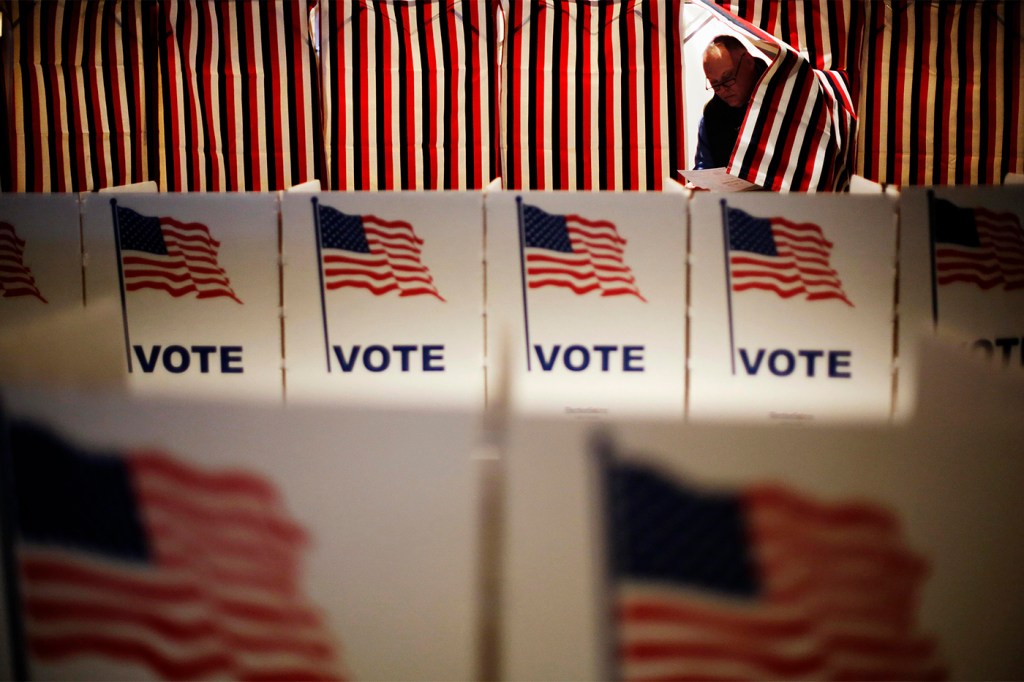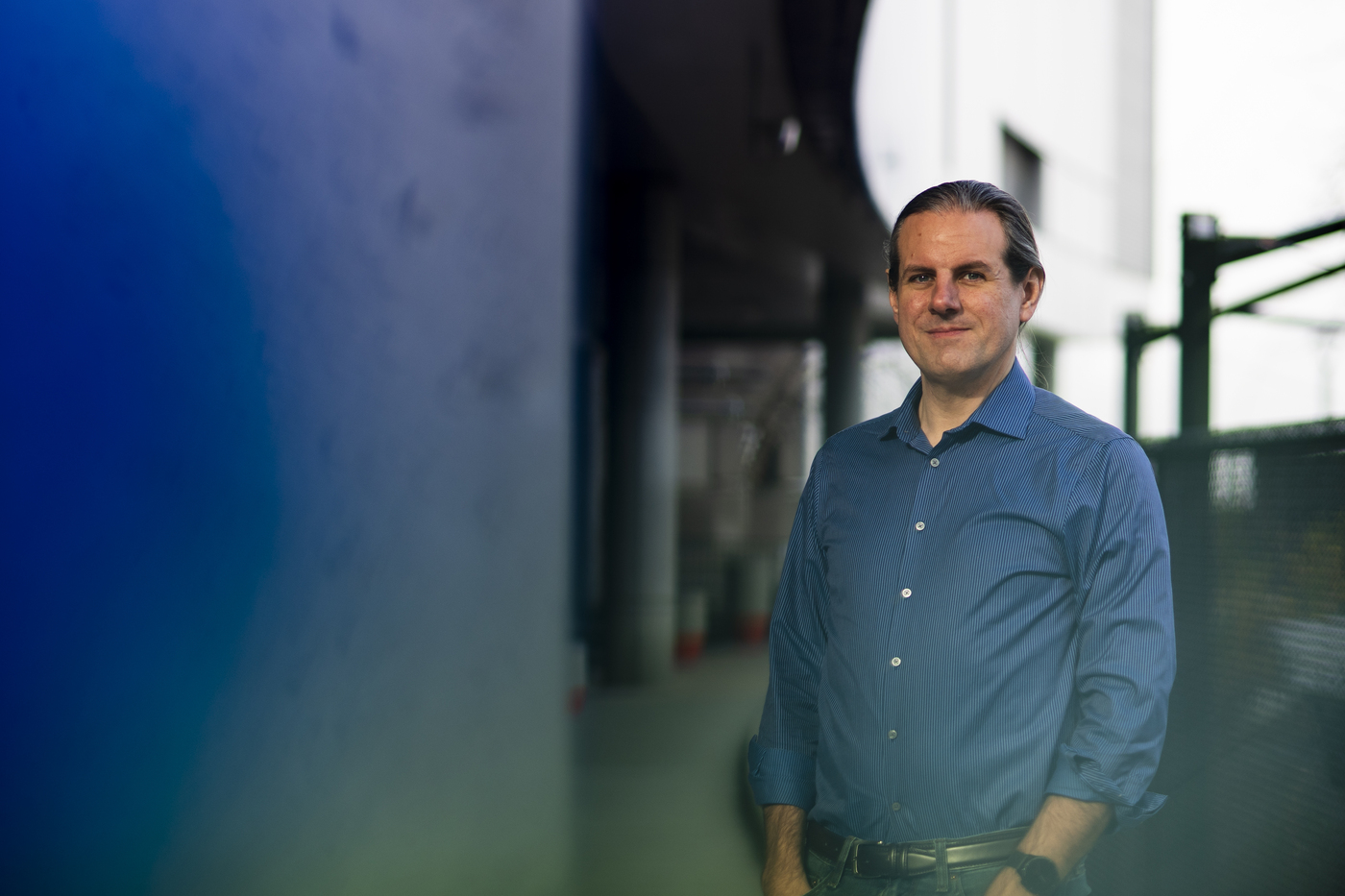Why is the US presidential election held on a Tuesday in November?
Millions of people will have their say on whether Donald Trump or Kamala Harris should be the next White House incumbent. Northeastern experts look at why the final votes are cast on a Tuesday.

LONDON — On Tuesday, Nov. 5, millions of Americans will cast their votes to elect the 47th president of the United States.
The act of voting on the first Tuesday that follows a Monday in November is a tradition that reaches back almost 180 years.
The decision in 1845 to pass a federal law to nominate a midweek polling day in the fall to choose the most powerful leader in the free world has its roots in the industrial makeup of 19th-century America, says Jessica Linker, an assistant professor in history at Northeastern University.
By the middle of the 1800s, states were increasingly making the right to vote available to non-land owning white men over the age of 21 (equal voting rights were not achieved until the 1960s). With that expansion of the popular vote came a desire to streamline the presidential voting process and move away from the previous system that allowed states to hold elections within a 34-day period before the first Wednesday in December.
Aware that early voting declarations could have a bearing on turnout and even voting behavior in states voting later, Congress wanted to create a single election day.
Why did they select a Tuesday?
“This is where agriculture comes in,” Linker explains.
Congress was keen, Linker says, to ensure the presidential polling day did not “disenfranchise” the vast numbers of people working in the agricultural sector at the time.
“They were aware that they had to call it at a time when it was not a difficulty to go to the polls,” she explains, “because the polls weren’t necessarily down the street from you. You had to travel to them and so part of the logic was that people might need a day to travel. Traveling might be a two-day affair, and so that ruled out certain days of the week — and this is how they ended up with Tuesday.”

Why not a Wednesday?
Linker says there were “calculations about what day of the week was not going to be a burden” for the farming community, with Wednesdays ruled out because that was a popular market day in many places.
Religion was also a factor, she notes. The centrality of Christianity to many of the country’s population meant polling day could not be a Monday as that would involve potentially having to set off on a Sunday when most Christians would attend church.
Christianity is also said to have played a part in specifying that polling day should be the Tuesday “after the first Monday,” with the provision in place to prevent it from falling on Nov. 1 — a day that some Christians observe as All Saints’ Day.
November was selected also for agrarian reasons. It was after the harvest, before the planting season and avoided the arrival of the worst of the winter weather.
But Linker argues that mid-19th century America should not purely be seen as a nation of farmers — with New York, Philadelphia and Boston all thriving cities at the time. It was simply that urban dwellers would have been less of a consideration for politicians when selecting a nationwide polling date.
Not strictly agricultural
“I would caution against talking about America [in this period] as being strictly agricultural because it has quite a few large cities that are taking part in the voting,” she says.
“The agricultural aspect gets emphasized because that was their [Congress’] concern when trying to figure out logistically, ‘How are we going to do this?’
Featured Posts
“In the 19th century, it was easier to get to a polling place if you lived in an urban area. They’re not worried about people who are in the urban areas; they’re worried about people who work on a farm. They will have to travel to a town center, so they’re worried about the part of the society that is rurally-based when making these calculations. I don’t think it is exclusive to that, though. It has to do with religious worship as well.”
Tuesday’s polling day was selected to favor the majority of workers in what was a very different type of economy and society to the one that exists today, with agriculture contributing 0.7% of the country’s gross domestic product in 2023, according to the U.S. Department of Agriculture.
Why not a federal holiday?
There have been campaigns to either switch the day to the weekend — mainland Europe tends to hold major votes on a Sunday (the U.K. is an outlier, with its convention of holding general elections on a Thursday) — or to make Election Day a federal holiday.
But Nick Beauchamp, an associate professor of political science at Northeastern, points out that changes to electoral participation, in the form of mail-in votes and early voting — a provision offered by most states that allows voters to attend a polling station during a set period before Election Day — have taken some of the steam out of calls to change the day.

According to The Center for Election Innovation and Research, at the 2000 presidential election, 40% of voters had access to early voting, either in person or by mail. Fast forward to the 2024 contest between Kamala Harris and Donald Trump and 97% have at least one option to vote before Election Day, the center found.
Some states, including Rhode Island and West Virginia, allocate Election Day as a holiday. Upgrading it to a federal holiday would be a big ask, Beauchamp says.
“In my experience at least, debates over moving the day or making it a holiday have definitely fallen by the wayside,” he says.
Federally coordinated policy?
“One of the problems in the U.S. is, because it is a federally coordinated day, we would need some sort of federally coordinated policy,” Beauchamp says. “Right now the country is completely dysfunctional with regard to federally coordinated policy — particularly anything that’s even remotely controversial — because everything has to get a supermajority in the Senate, as well as having the Senate, the House of Representatives and the presidency all lined up.”
The growing popularity of mail-in voting and early voting has made the period when the electorate is casting their vote much wider. Beauchamp notes that, not only does this have the potential to reshape the thinking behind when campaign messaging is best deployed, it has also taken the sting out of criticisms of having a midweek polling day.
“I think part of the reason why some of the pressure on the Tuesday itself might be diffusing,” he says, “is that Tuesday has essentially become the last day of the sale rather than the only day of the sale.”











